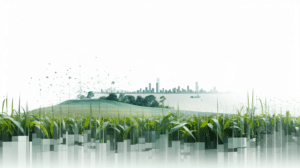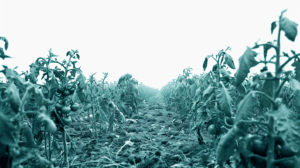In today’s fast-paced and interconnected world, the food & beverage industry faces numerous challenges in ensuring the quality, sustainability, and traceability of its products. One crucial aspect that is gaining increasing attention is supply chain engagement – the collaborative involvement of all parties in the supply chain, from growers to manufacturers. This blog explores why this engagement is pivotal for the food & beverage industry, focusing on visibility, sustainable practices, and traceability.
Engaging the Food Ecosystem
The food & beverage supply chain is a complex network of players, ranging from individual growers to cooperatives, traders, processors, packers, and manufacturers. Collaboration among these stakeholders is the key to an efficient supply chain. Growers provide the raw materials and knowledge of cultivation, while cooperatives facilitate aggregation and coordination. Traders ensure the efficient flow of goods, processors & packers add value to the products, and manufacturers turn these into the final goods we find on store shelves.
By engaging with each party in the ecosystem, food & beverage companies can create a holistic and sustainable supply chain. Transparency, quality, and traceability are enhanced, ensuring that products are not only safe and reliable but also adhere to sustainable standards. The engagement between these players fosters trust, encourages responsible practices, and strengthens the entire industry.
Visibility down to the Roots
At the core of the food & beverage supply chain are the crops that serve as raw materials for the food products we consume. Knowing where these crops are grown, how they are cultivated, and under what conditions they thrive is vital for ensuring product quality. Engaging with growers provides valuable insights into the agricultural practices applied, the state of the land, and the cultivation methods. With this visibility, stakeholders across the supply chain can make informed decisions, guaranteeing that the raw materials meet the required standards.
Sustainable Practices
Engaging with growers and cooperatives is the first step towards ensuring that crops are cultivated in an environmentally responsible manner. It enables stakeholders to monitor the use of chemicals, pesticides, and fertilizers, and to ensure that land isn’t subjected to deforestation or other unsustainable farming practices. With this information, the industry can promote eco-friendly agriculture, protect ecosystems, and reduce its environmental footprint.
Food Traceability for Sustainable Validation
Traceability is the backbone of a sustainable food supply chain. By enabling traceability, the production process can be monitored and verified. This not only builds trust with consumers but also ensures that products meet the required sustainability and quality standards. Traceability helps the industry to validate sustainable practices, making it clear which products meet the necessary criteria.
Technology-Enhanced Supply Chain Engagement
Cutting-edge technology platforms enhance how different parties collaborate and enforce standards, thereby playing a vital role in providing visibility into the food supply chain. These platforms enable real-time data sharing, and data aggregation, creating a transparent and efficient flow of information and resources. With such technology, stakeholders can monitor cultivation practices, crop quality, and environmental sustainability throughout the supply chain, promoting responsible agricultural practices and reducing risks. By bridging between these ecosystem players, technology platforms foster a more integrated and sustainable supply chain, ultimately ensuring the delivery of high-quality products to consumers while upholding environmental and ethical standards.








